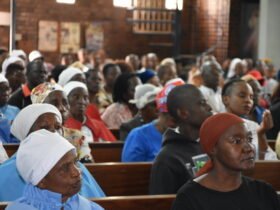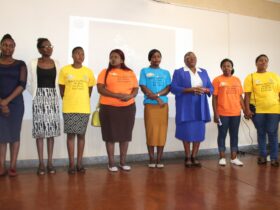There was a clip on the TV last night showing a Taliban leader in Afghanistan
listening to a question of Lyse Doucet, the BBC reporter, about the role of
women in delivering aid to the starving people of the country. His eyes were
full of scorn for everything the woman in front of him represented. He was
listening but not listening. It was obvious he would not even consider whether
his attitude to women was right and good. Yet, it seems, not all the Taliban are
like that. There was a subsequent report that some Taliban leaders are listening
and opening the door a little.
Jesus began his ministry, Matthew tells us, on a mountain – as Moses did when
he received the Law – and his opening words announced the values of the new
way of the ‘kingdom’ of God. ‘Blessed are the poor in spirit.’ These words say
it all. Blessed are those who are prepared to be ‘poor’ about their own ideas,
beliefs and practices. They are, what the prophet Zephaniah calls, the ‘humble
of the earth.’ They have nothing of their own that they hang on to. They are
open.
Paul started out like the Taliban, zealous for ‘the law’, the traditions, the ‘way
we do things’. He was pretty good at persecuting this new sect led by an
ignorant bunch of Galilean troublemakers. But then God intervened. He called
Paul, as we noticed this week on the 25 th of January, to a new way of thinking.
And Paul did not resist. He was poor enough in spirit to listen to the voice and
interpret the sign (when he became blind).
That is basically what the sayings we call the Beatitudes are all about. They
describe a new way of thinking. Am I humble enough to listen to something that
might shake me up? Can I put my prejudices and ways of thinking to one side
for a moment and listen? These are desperately relevant questions today as we
see war, global warming, streams of migrants and other ills in our world
seemingly gathering pace, simply because we do not listen with an open heart.
And in our personal lives there can be things that we just don’t want to hear.
It would be naïve to suggest that we could easily solve our problems.
Obviously, they are often complex and involve painstaking reflection. But a
huge step forward is possible if we put our own strongly held opinions to one
side and begin to listen. ‘Blessed are those who hunger for what is right.’ Doing
what is right? Gerhard Lohfink once wrote; it wasn’t that the owner of the
vineyard, in Jesus’ parable, was commended for being generous, but because he
did the right thing. It looks crazy to give the same to one who worked one hour
and one who ‘bore the heat of the whole day’. But the point is; it was the right thing to do. Lofinck says, ‘Jesus was not crucified because he was generous but
because he did what is right.’ Can we do likewise?
29 January 2023 Sunday 4A Zeph 4:3-13 1 Cor 1:26-31 Mt 5:1-12
Fr David Harold-Barry SJ










Leave a Reply